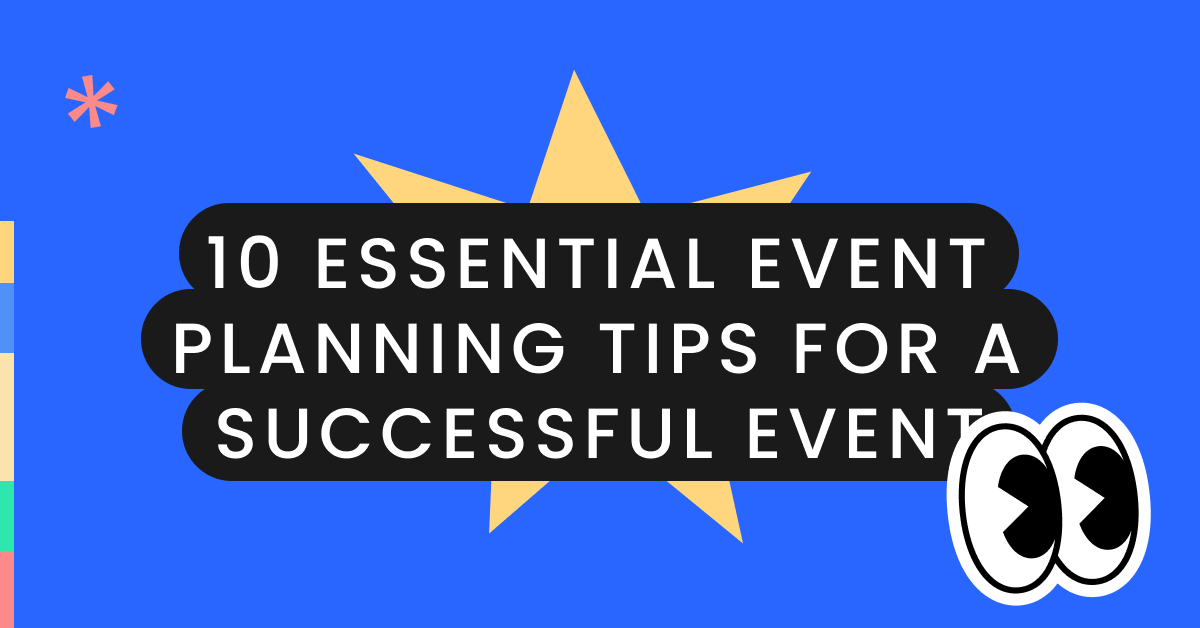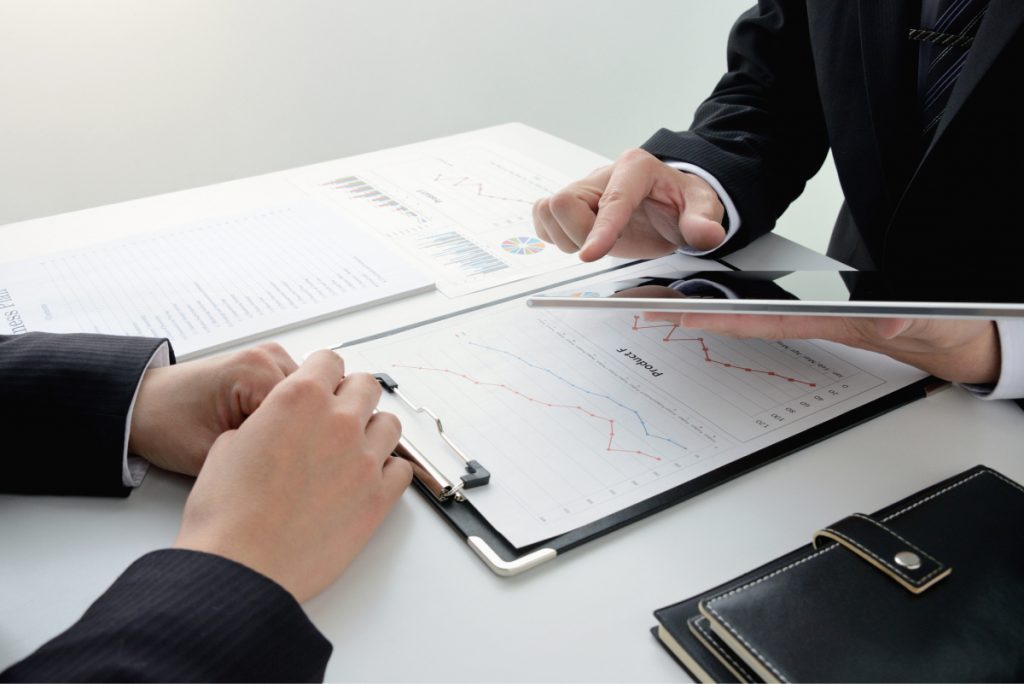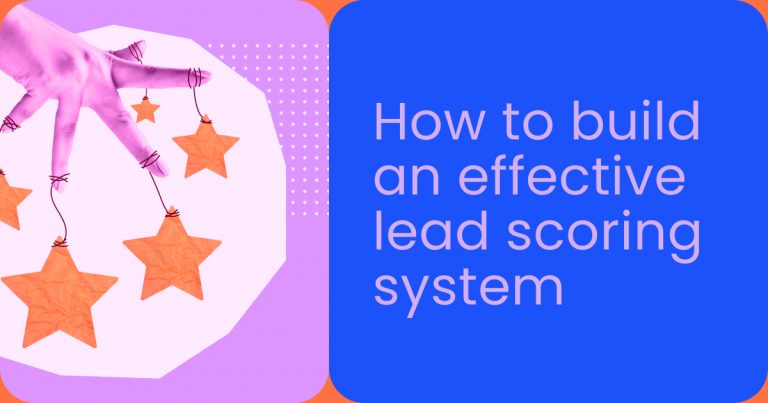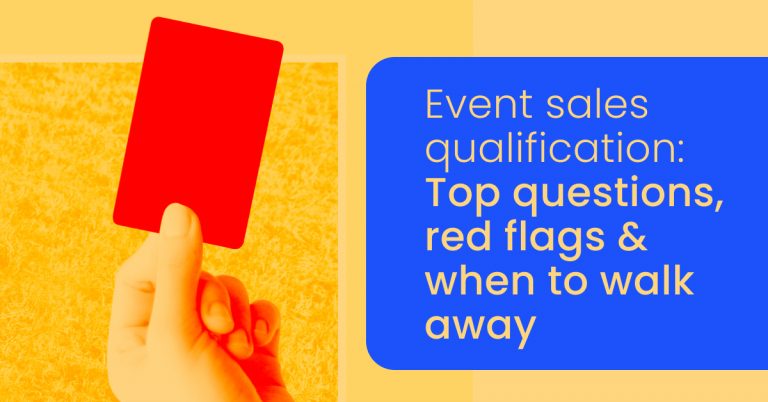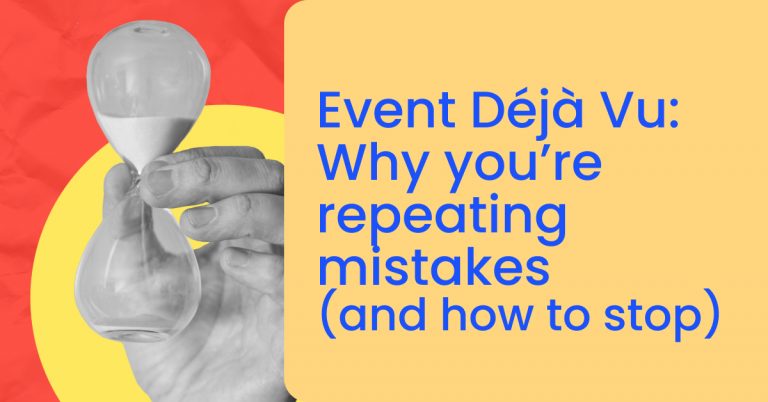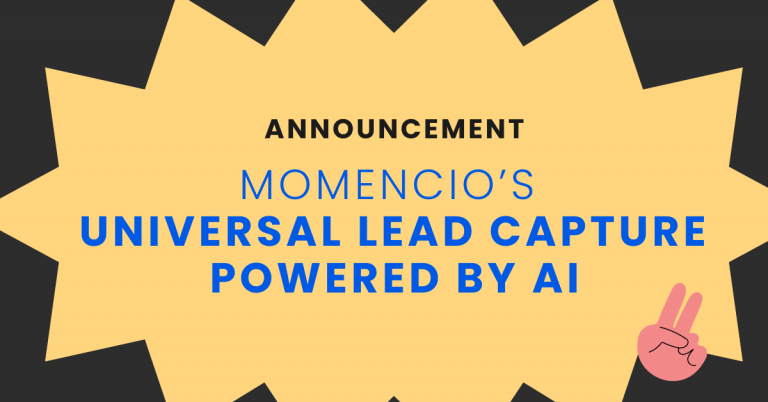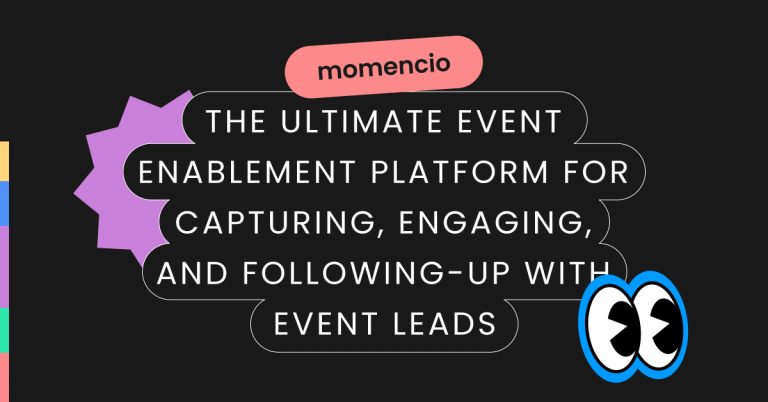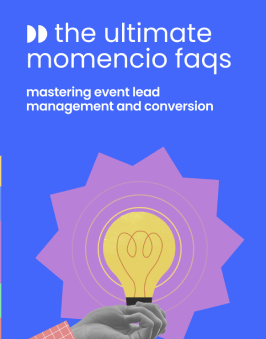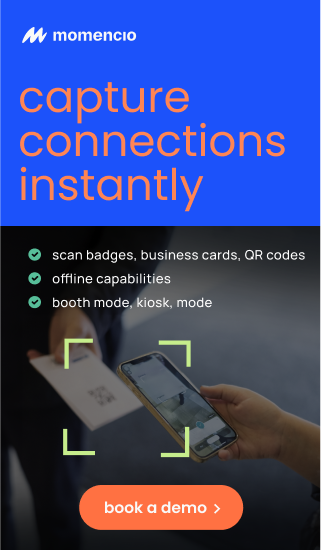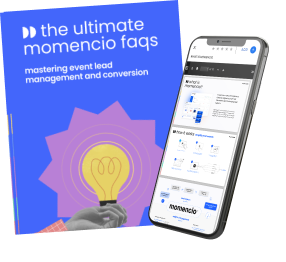Planning a successful event requires a blend of organizational skills, foresight, and a knack for engaging attendees. Whether you’re a seasoned event planner or stepping into the role for the first time, understanding the key elements that contribute to an event’s success is crucial. In this article, we’ll explore ten essential event-planning tips that can help you organize memorable and effective events. From leveraging the latest technological tools like momencio for enhanced attendee engagement and lead capture to prioritizing tasks and creating engaging experiences, these tips are designed to guide you through the complexities of event planning.
Here are the top 10 essential event planning tips to ensure your event not only succeeds but also leaves a lasting impression on its attendees.
-
Set Clear Objectives
The foundation of any successful event is its objectives. Whether you’re looking to generate leads, educate attendees, or build brand awareness, having clear goals guides every decision you make. Begin with the end in mind: What do you want attendees to take away? How do you measure success? Answering these questions early on ensures that all elements of your event are aligned with your desired outcomes.
-
Understand Your Audience
Your event should cater directly to the interests, needs, and preferences of your target audience. Conduct audience research through surveys, social media engagement, and market analysis to gather insights into their expectations. Tailoring the event experience to your audience not only increases attendance rates but also enhances overall satisfaction and engagement.
-
Leverage Technology
Incorporating technology into your event planning and execution can drastically improve efficiency and attendee engagement. From event management software that streamlines logistics to apps that facilitate networking, technology can enhance every aspect of the event experience. Consider leveraging momencio for its advanced event lead capture and follow-up capabilities, ensuring you maximize engagement and ROI from your attendee interactions.
-
Prioritize Tasks
With numerous tasks vying for your attention, prioritizing becomes essential. Identify critical milestones and allocate resources to high-impact activities. Utilizing project management tools can help keep your team focused on what matters most, ensuring the timely completion of all event planning phases.
-
Create a Comprehensive Budget
A detailed budget prevents financial overruns and ensures you can allocate funds to critical aspects of your event. Include all potential expenses, from venue rental to marketing costs, and monitor your spending closely. A contingency fund is also vital for addressing any unforeseen expenses that arise.
-
Select the Right Venue
Consider factors like location, capacity, amenities, and ambiance. Ensure the venue aligns with your event’s theme and objectives and offers a comfortable, accessible experience for attendees.
-
Engage Attendees
Active engagement is the key to a memorable event—plan for interactive workshops, Q&A sessions, and networking opportunities that encourage participation. Personalization, facilitated by tools like momencio, can make the experience more meaningful for each attendee, leading to higher satisfaction and retention rates.
-
Market Your Event Effectively
A multi-channel marketing approach ensures your event reaches its intended audience. Craft compelling messages that are customized and highlight the benefits of attending your event. Use targeted ads, social media campaigns, email marketing, and partnerships to build anticipation and drive registrations.
-
Prepare for the Unexpected
Even the best plans can encounter unexpected challenges. Develop contingency plans for common issues like technology failures, speaker cancellations, or weather disruptions. Quick, composed responses to unforeseen problems can save your event from significant disruptions.
-
Follow Up Post-Event
The relationship with your attendees continues even after the event does. Post-event follow-up is crucial for reinforcing the connection. Send thank-you emails, share highlights, and request feedback through surveys. This not only shows appreciation but also provides insights for improving future events.
By integrating these ten essential event planning tips into your event planning strategy, you’re setting the stage for an event that exceeds expectations. Remember, your goal is not just to organize a tradeshow but to create an experience that resonates with attendees long after it concludes. Tools like momencio not only streamline the planning process but also enhance engagement, making them indispensable for modern event planners.
Leverage Technology
In the digital era, the right technology can transform the ordinary into the extraordinary, especially in event planning. Platforms like momencio not only simplify the logistical aspects of organizing events but also revolutionize how attendees interact with your content and brand. From seamless registration processes and interactive agendas to AI-driven lead capture and analytics, integrating innovative tech solutions ensures your event is accessible, engaging, and measurable. By embracing technology, event planners can create more personalized and memorable experiences, ensuring every attendee leaves with a lasting impression.
Prioritization is Key
With myriad tasks demanding your attention, prioritizing becomes essential for successful event planning. Start by identifying your event’s core objectives and align your activities to support these goals. Utilize tools like momencio to gain insights into attendee preferences and behaviors, allowing you to focus on what truly matters to your audience. Prioritizing tasks not only helps manage resources effectively but also enhances the overall event experience, ensuring that every element of the event contributes to its success.
Engagement Strategies
The heart of a memorable event lies in its ability to engage participants deeply. Create interactive sessions that encourage active participation, use gamification to inject fun and competition, and leverage social media to foster a community around your event. Personalized engagement, powered by insights from platforms like momencio, can elevate the attendee experience, making your event stand out. By crafting a strategy that focuses on engaging your audience before, during, and after the event, you’ll build stronger connections and leave a lasting impact.
Planning Strategies for Success
Successful event planning relies on a solid strategy that covers every aspect of the event, from initial brainstorming to post-event follow-up. This includes setting realistic timelines, budgeting wisely, and understanding the needs and expectations of your audience. Incorporating feedback from previous events can provide valuable insights for improvement, while contingency planning ensures you’re prepared for any scenario. Emphasize the importance of a well-thought-out plan that addresses both the big picture and the minute details, providing a seamless experience for all participants.
The Guide to Effective Event Planning
A practical event planning guide acts as a roadmap, guiding you through each step of the process. It should cover everything from setting objectives and budgeting to selecting the right technology and marketing your event. A comprehensive guide will also include tips on attendee engagement, vendor management, and post-event analysis. This invaluable resource should be regularly updated with the latest trends and technologies, such as momencio, to help planners stay ahead in the ever-evolving landscape of event management.
Organizational Tips for Event Planners
Organization is critical to navigating the complexities of event planning. Utilize digital tools to keep track of tasks, deadlines, and communications. A clear, detailed plan, along with regular check-ins and updates, can help ensure that every team member is aligned and on track. Effective organization not only streamlines the planning process but also enables you to adapt quickly to changes or challenges that may arise. Read here 10 proven strategies for boosting event ROI and engagement
Coordination Methods
Efficient coordination among team members, vendors, and participants is crucial for the smooth execution of an event. Establish clear communication channels and protocols to ensure everyone is informed and engaged. Event technology can play a significant role in facilitating this coordination, providing platforms for collaboration and information sharing. By fostering a culture of open communication and teamwork, you can ensure that every aspect of your event is harmonized and executed flawlessly.
FAQs: Essential Event Planning Tips
- When should I start planning my event?
- Essential event planning tips: The ideal planning time can vary based on the size and complexity of your tradeshow or event. For large-scale events, start planning at least 6 to 12 months. Smaller events may require at least 3 to 6 months of preparation. Early planning ensures you have ample time to secure venues, speakers, and vendors and to implement a robust marketing strategy.
- How can I measure the event’s success?
- Essential event planning tips: Success metrics may include attendee satisfaction, engagement levels, lead generation, and ROI. Tools like momencio offer analytics and insights into attendee engagement and behavior, making it easier to measure success against your initial objectives.
- What are the critical elements of a successful event marketing strategy?
- Essential event planning tips: A successful marketing strategy should include a clear understanding of your target audience, compelling messaging that highlights the value of your event, and a mix of channels for promotion, including social media, email marketing, and content marketing. Personalization and follow-up strategies powered by technologies like momencio can significantly enhance the effectiveness of your marketing efforts.
- How can I ensure high attendee engagement during my event?
- Essential event planning tips: To keep attendees engaged, offer interactive sessions, networking opportunities, and engaging content that resonates with their interests and needs. Utilizing technology to facilitate live polls, Q&A sessions, and personalized content delivery can also enhance engagement.
- What should I include in my post-event follow-up?
- Essential event planning tips: Your follow-up should include a thank-you message to attendees, a survey for feedback, key takeaways from the event, and any follow-up content or offers related to the event’s theme. This not only shows appreciation but also keeps the conversation going, increasing the likelihood of future engagement.
- What are essential event planning tips for selecting the perfect venue?
- Among the most essential event planning tips is choosing a venue that aligns with your event’s theme, audience size, and logistical requirements. Consider location accessibility, technological needs, and the ambiance to ensure it complements the event’s purpose.
- Can you share essential event planning tips for budget management?
- Effective budget management is critical, and essential event planning tips include early and thorough budget planning, regular reviews, and contingency planning. Prioritize your expenses, negotiate with vendors, and always look for opportunities to maximize your budget efficiency without compromising on quality.
- What essential event planning tips do you have for increasing attendee engagement?
- Key essential event planning tips for enhancing attendee engagement involve interactive elements, personalized experiences, and technology integration. Use interactive sessions, live polling, and social media to create immersive experiences. Personalization, such as tailored content and networking opportunities, can significantly increase participation and satisfaction.
Organizing a successful event requires meticulous planning, a good understanding of your audience, and the strategic use of technology. By incorporating the ten essential tips outlined in this article, you can enhance the efficiency of your planning process, engage your audience more effectively, and achieve your event objectives. Remember, tools like momencio are not just for lead capture; they’re comprehensive platforms that support every stage of your event, from planning to post-event follow-up. Embrace these strategies and tools to elevate your tradeshow and create memorable experiences for your attendees.
Ready to take your event planning to the next level? Explore how momencio can transform your event experiences with its powerful lead capture, engagement analytics, and personalized follow-up capabilities. Book a demo today and discover the difference that the right technology can make in achieving your event goals. Transform your event planning journey with momencio and set the stage for unforgettable events.
